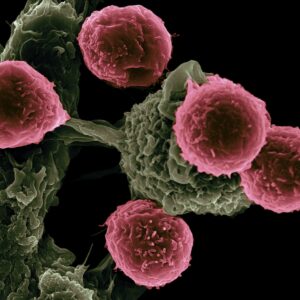Record number of cancer patients treated in 2022
New figures from the NHS display a record number of cancer patients were treated last year despite waiting lists being the longest ever.
Research shows more than 320,000 people received cancer care in the 12 months from November 2021 – November 2022, which was up by more than 8,000 on the same period from November 2018.
A huge number of people also had potentially life-saving cancer checks last year, with more than 2.8 million seen by the NHS, up from the pre-pandemic period when 2.35 million were tested.
More than 10,000 people were checked very day in the 12 months from November 2021 and 6% of tests resulted in a cancer diagnosis. However, these statistics come amid record waiting lists for routine treatment across all illnesses including cancer.
Urgent cancer referrals, around 239,180, were made by GPs in England in October – the highest number for that month in records going back to 2009.
Dame Cally Palmer, National Cancer Director for NHS England, said: NHS staff have been working incredibly hard over the past year to recover from the pandemic and it’s thanks to our campaigning efforts and early diagnosis drives, alongside the courage of people like Dame Deborah James encouraging people to come forward, that we’ve seen and treated record numbers of people.
‘This is important progress – we know lives are saved when cancers are caught early and when more people are seen for tests and checks – and as we head into the new year, the NHS will not take its foot off the pedal when it comes to ensuring people are seen and treated as early as possible.’
Diagnosed in December 2016, Dame Deborah James campaigned tirelessly for more public awareness of bowel cancer, and the need to be vigilant about symptoms like blood in your stool, before she passed away from the disease in June 2022.
Leading cancer charity, Macmillan, reported in October 2022 that the number of people currently living with the illness in the UK is estimated to be 3 million. This number is expected to rise to 3.5 million by 2025 and 5.3 million in 2040, thus showing people must continue being checked for the disease.
Photo by National Cancer Institute















